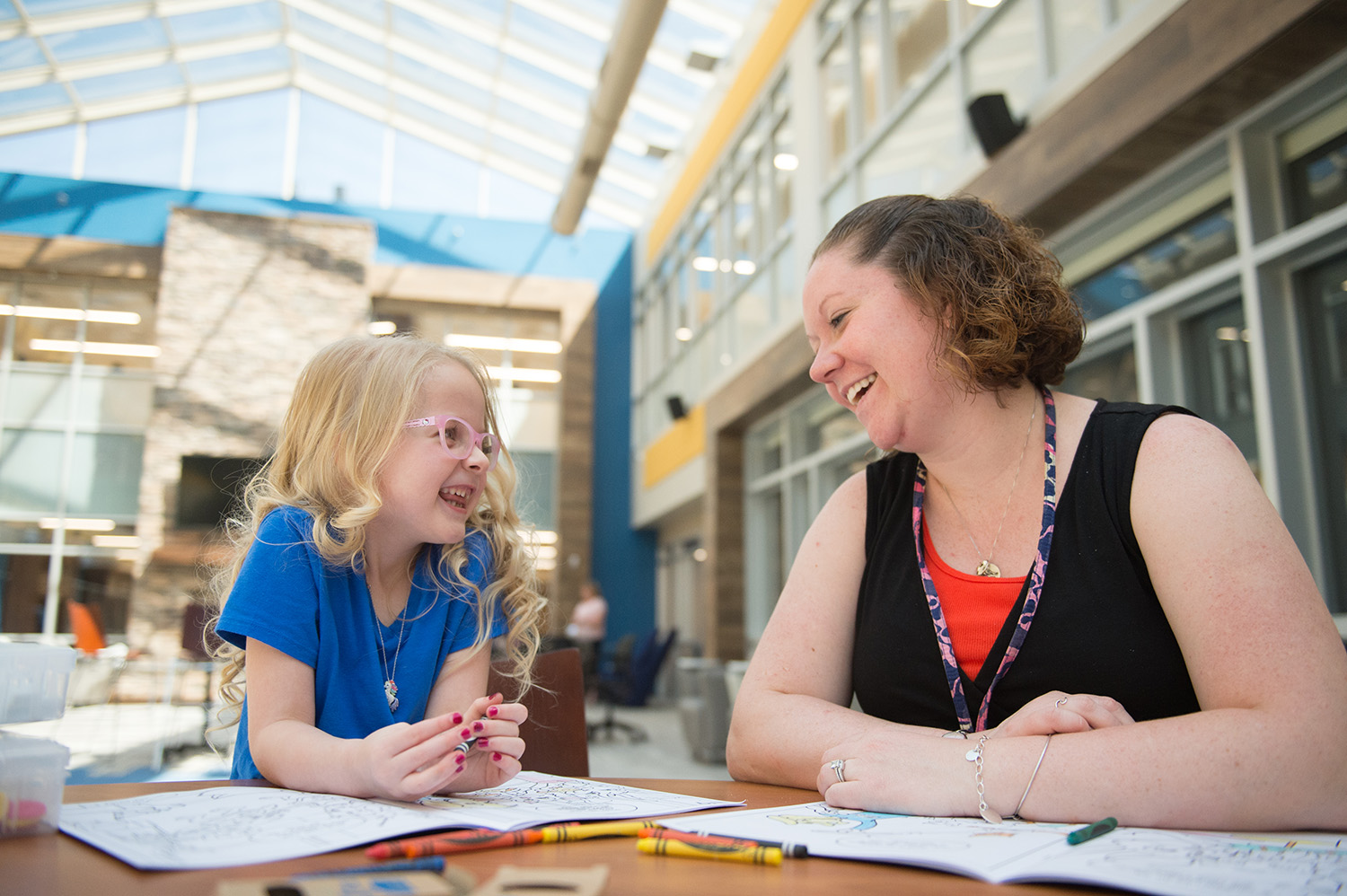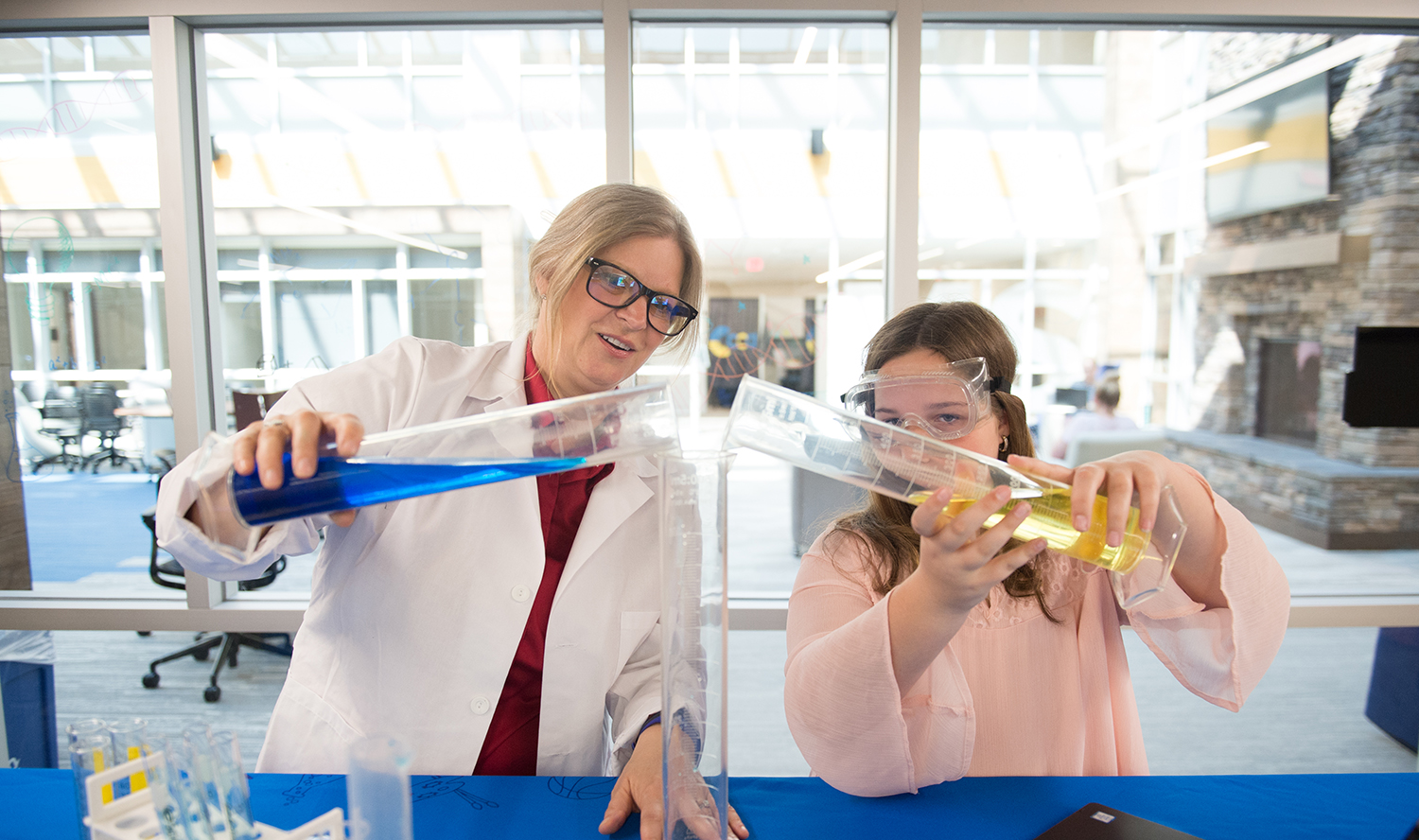Enrollment Now Open for Second Semester. Click Here
Enrollment Now Open for Second Semester. Click Here

The WIDA Can Do Philosophy focuses on what ELs can do and empowers them to share their backgrounds and experiences. Educators who support the Can Do Philosophy believe every EL brings valuable assets to the classroom and can enrich the learning experiences for all students and teachers.
Teachers need to recognize the potential of students’ assets and focus on nurturing their skills. For example, students who understand multiple languages and cultures can potentially communicate across various contexts, build global relationships, and enjoy success beyond the classroom.
Families also benefit from the Can Do Philosophy because it empowers them to be advocates for their children and their academic goals. Parents can encourage students to share their cultural, experiential, and linguistic assets with peers and teachers, creating a richer community overall.
At CCA, we understand all students bring value to the classroom and the communities they live in regardless of their cultural background or English language abilities. Our teachers use the Can Do Philosophy to teach ELs and nurture their unique skills, knowledge, and interests in a virtual environment.
In addition to the Can Do Philosophy, WIDA also uses four Big Ideas to support their framework, which are:
The Can Do Philosophy and Big Ideas support student-focused learning experiences and help ELs feel confident, understood, and valued.
It’s essential ELs have equal opportunity to actively participate in learning and equal access to high-quality, standards-based content. Equity of opportunities and access helps ELs succeed academically and allows them to share their assets.
Teachers can integrate language learning with academic content to promote language development and interaction with other students. Content-language integration is critical in planning curricula and instruction methods.
All stakeholders involved in an EL’s development are responsible for their academic success. Language and content teachers can collaborate to plan instruction and set common learning goals.
A functional approach to language development highlights the purposeful use of language. In other words, teachers can focus on showing students how to use language to achieve particular goals.
Part of the Can Do Philosophy is understanding the cultural and language background of the learner. Teachers are encouraged to learn about EL students’ backgrounds as much as possible. By understanding each EL’s past experiences, teachers can create comfortable and welcoming learning environments, adjust instruction accordingly, draw on their assets, and offer support to meet their needs. Teachers can also activate prior knowledge for English learners and help them attach what they already know to new material. Teachers should learn the following about each EL student:
Teachers need to ensure they get the student’s name right, both in pronunciation and spelling. Correctly pronouncing and spelling a student’s name affirms their identity and helps ensure accurate school records. Teachers should ask ELs their formal names and what they would like to be called in class as soon as they arrive.
Educators need to know where ELs came from. When teachers know where students are from, they will have clues about other important details, such as previous schooling and cultural traditions. However, finding the answer to this question may not be as easy as it seems. Students may have moved between various countries or frequently traveled within the U.S. Teachers might obtain this information by directly asking the EL or their family members or looking at student records.
It’s helpful to know a student’s family background and become aware of their responsibilities at home. ELs might have many responsibilities outside of school, like caring for younger siblings or being a translator for family members. Teachers can use this information to collaborate with family members and find solutions to situations that conflict with school-related activities. Colorín Colorado recommends teachers find out the following:
Even if teachers can’t find out everything about an EL’s home life, they should prioritize knowing who they can build relationships with on the student’s behalf.
It’s useful for teachers to know an EL’s educational background, including any gaps in schooling. Teachers can ask students and parents for more information or possibly contact the school from the EL’s home country to learn more. If the student has already spent time in the U.S., teachers may gain information from student records. Educators can try to discover the following:
Teachers may also wish to learn more about a student’s behavior in school, any subjects they may have struggled with, and activities they enjoyed.
Teachers should work together to support an EL’s language development, which requires an understanding of their English proficiency level. Content teachers can collaborate with ESL instructors to interpret English language proficiency assessment scores and determine a student’s strengths and weaknesses. Using their insights, teachers can develop personalized learning plans.
Helping a student succeed academically takes more than knowing their educational background. Teachers can help students feel more engaged, cared for, and accepted by incorporating their interests, goals, and dreams with learning. Educators might ask students about their favorite hobbies or sports or consider books or school activities they enjoy. Parents may also talk about their child’s favorite activities and goals. Either way, knowing who the student is enables teachers to initiate conversations and connect with students on a deeper level.
WIDA’s Can Do Descriptors describe what EL students can do in reading, writing, listening, and speaking as they develop language skills. The Can Do Descriptors are meant to enhance WIDA’s standards during instruction and help teachers design a curriculum based on a student’s English proficiency level.
Can-do descriptors describe what ELL students can do for each domain and proficiency level by grade level cluster.
To illustrate, let’s look at Can Do Descriptors for the grade 1 level in the listening domain, organized by the arguing Key Language Use. At different proficiency levels, ELs can process arguments by:
You can find the various editions of Can Do Descriptors for grades K-12 on the WIDA website.


If you’re a teacher looking for ways to apply the Can Do Philosophy in cyber school, here are some tips:
Lastly, it’s essential to maintain high expectations for ELs and expect the same level of critical thinking as other students. Try following these three steps to ensure ELs are challenged:
The point is not to make academic content easier for ELs but to make it possible for them to participate.
As a cyber school teacher at CCA, you’ll have the chance to collaborate with families and students and create personalized curricula developed around a student’s strengths. If you’re a Pennsylvania-certified teacher, we encourage you to contact us about joining the CCA team.
Chapter 1: Levels of English Language Learning
Chapter 3: Creating a Welcoming Online Classroom for Students
Enrollment Now Open for Second Semester. Click Here